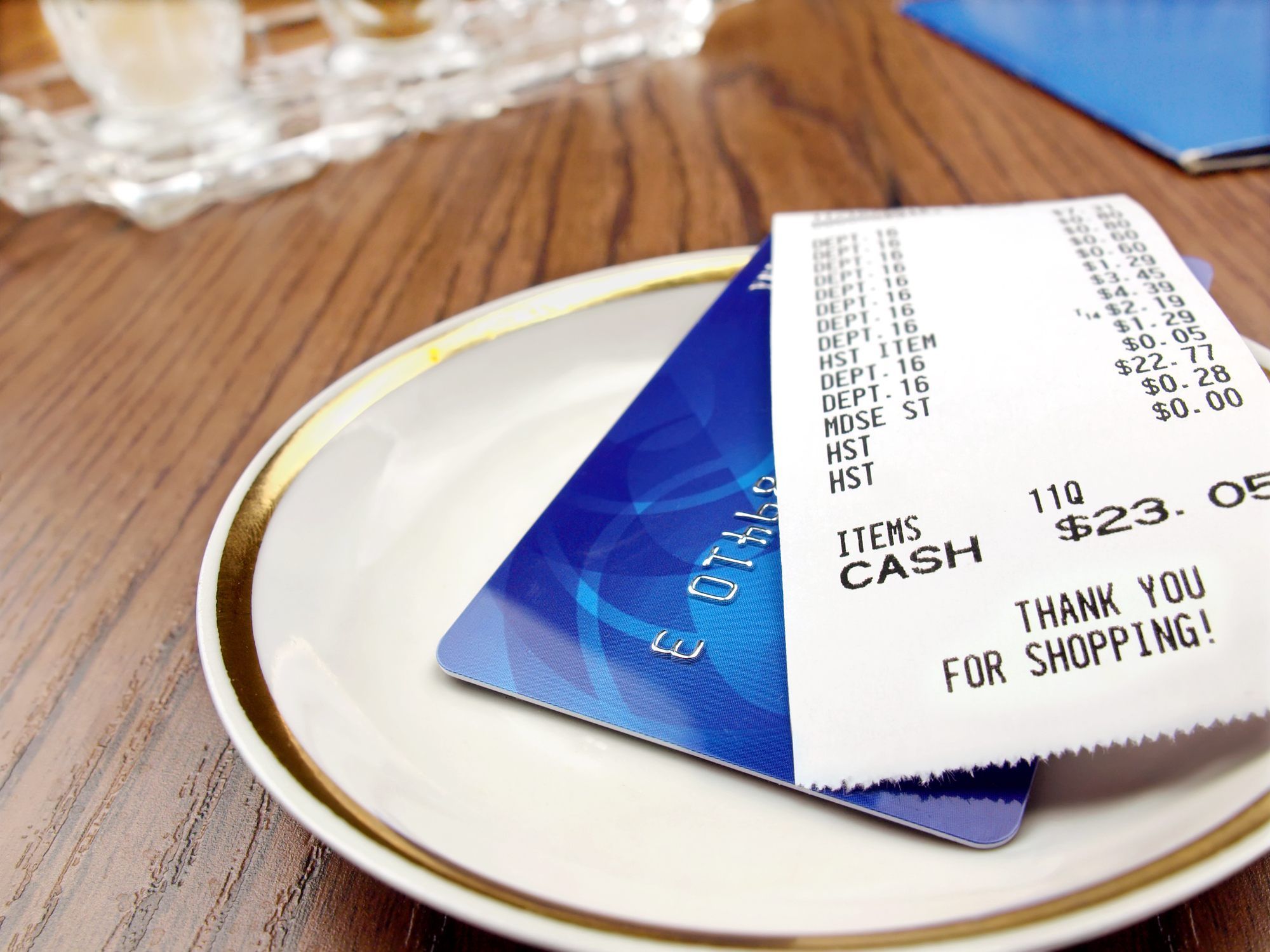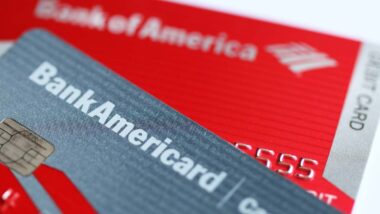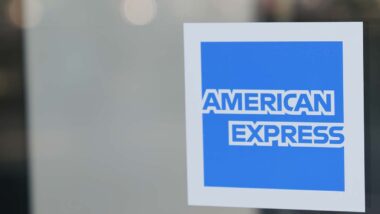Top Class Actions’s website and social media posts use affiliate links. If you make a purchase using such links, we may receive a commission, but it will not result in any additional charges to you. Please review our Affiliate Link Disclosure for more information.
A credit card receipt is great for record-keeping and providing proof of a transaction, but it can also furnish scammers with the information they need to commit fraud and identity theft.
In an effort to protect consumers from fraud, Congress amended the Fair Credit Reporting Act, first enacted in 1970, by passing the Fair and Accurate Credit Transactions Act, also known as FACTA. FACTA was introduced back in 2003, and while businesses were given time to update their machines to compliance, it has been in full effect since 2006.
FACTA dictates what debit and credit card info can appear on receipts. For example, the credit card receipt law requires that on an electronically printed receipt, a credit card number must be truncated (shortened) to only the last five numbers, and the expiration date must be omitted entirely.
This should look something like this:
**** **** ***1 2345
Showing fewer than five numbers is acceptable, as long as they come from the last five digits. Many businesses choose to truncate so that only the last four digits are showing.
**** **** **** 4321
No portion of the expiration date should be shown, though it can be displayed as asterisks or otherwise censored instead.
**/**
**/****
These additional safeguards make it more difficult for criminals to commit credit card fraud and identity theft.
Under FACTA, consumers are also entitled to a free credit report once every 12 months from each of the three major consumer credit reporting companies — Equifax, Experian and TransUnion — which helps consumers spot billing discrepancies.
Aimed at preventing and mitigating identity theft, FACTA also helps consumers with:
- Resolution of consumer disputes
- Accuracy of consumer records
- Access to credit information
What Information Should Appear On a Credit Card Receipt?
A few select pieces of customer information are allowed on receipts. According to FACTA, credit card info on the receipt should be limited to the following information:
- Date of purchase
- Business name
- Purchase amount
- Sales tax
- The last five digits or fewer of the credit card number
- A signature panel at the bottom
- Sometimes receipts will include other transaction information
Receipts should never show a credit card’s expiration date. And it’s a FACTA violation if more than a card’s last five digits are printed on a receipt, or those five digits are shown elsewhere in the card number than the last five.
How Secure Are Receipts?
While the truncated numbers on a credit card are not enough to gain access to a consumer’s checking account, crafty scammers may try to use those numbers to phish for the rest of the sequence if more than the last five digits of the credit card or debit card number are included on the receipt.
Consumers should know that a credit card company would never ask for the entire card number. If there’s a suspicion about the authenticity of a caller, the consumer can confirm the company’s identity by hanging up and calling a number known to be associated with their credit card company.
What are Other Ways FACTA Tries to Reduce Fraud & Identity Theft?
In addition to truncating the account number, FACTA guidelines allow consumers to obtain a free credit report once a year from each of the three major credit reporting agencies. This provides consumers the opportunity to review their credit reports and address any disparities in the transaction records.
FACTA also requires consumer reporting agencies to issue fraud alerts for consumers who suspect they may be targets for fraud and identity theft.
The fraud alert is required to remain on file for at least 90 days and each reporting agency is required to notify the other consumer reporting agencies of the alert.
What Recourse is There if FACTA is Violated?
Consumers have the option of filing a credit card receipt lawsuit against repeat FACTA guideline violators.
It’s important to note that FACTA guidelines do not apply to handwritten receipts used by a small business or to a business that still uses a credit card imprinting machine where no other option is available. These privacy law guidelines stand for companies that use credit card machines.
FACTA Class Action Lawsuit Filed
In October 2018, plaintiff Parker Siglin filed a FACTA class action lawsuit against Sixt Rent A Car LLC for alleged FACTA violations. Siglin claims that the car rental company violated FACTA by printing too much information on electronically printed receipts.
Siglin reportedly visited a Sixt Rent A Car rental center in San Diego, California. After paying for his rental, Siglin reportedly received a receipt that contained more personal information than is allowed under FACTA. The receipt allegedly contained the first six and last four digits of Siglin’s Visa credit card as well as the card’s full expiration date—twice as many card digits as allowed under FACTA, plus the fully disallowed expiration date.
Siglin argued that the excessive information on his receipt was a direct violation of FACTA guidelines and that other consumers likely experienced this issue. His FACTA class action lawsuit represented the “Plaintiff and certain other consumers who conducted business with Defendant during the time frame relevant to this complaint, each of whom paid for goods using a personal credit or debit card and were entitled to receive a truncated receipt.”
“As a result of Defendant’s unlawful conduct, Plaintiff and the Class have been burdened with an elevated risk of identity theft.”
Siglin’s lawsuit represents a Class of individuals who, since October 2016, rented a vehicle at one of Sixt Rent A Car’s location, used a credit or debit card, and were provided with a receipt that displayed more than the last 5 digits of the card number and/or the expiration date of the card.
Filing a FACTA Lawsuit
If you suspect that you have been hit with a FACTA violation, potentially placing your information at risk of fraud and identity theft, you may be able to file a lawsuit and pursue compensation. Actual identity theft having taken place is not necessary to pursue a FACTA lawsuit, just the FACTA violation itself.
Not only does reporting FACTA violations help protect your own information, it also helps protect the information of hundreds or even thousands of other customers. Indeed, if one consumer receives an electronically printed receipt that does not comply with FACTA rules, this often indicates that many others may also have been affected by the same error, paving the way for a class action lawsuit.
Filing a lawsuit can be a daunting prospect, so Top Class Actions has laid the groundwork by connecting you with an experienced attorney. Consulting an attorney can help you determine if you have a claim, navigate the complexities of litigation, and maximize your potential compensation.
It is important to regularly check the credit card information printed on your receipts, keeping an eye out for any potential FACTA violations. Make sure you keep any and all relevant receipts as evidence to support your claim.
The FACTA Class Action Lawsuit is Siglin v. Sixt Rent A Car LLC, Case No. 0:18-cv-62536-JEM, in the U.S. District Court for the Southern District of Florida.
Join a Free Credit Card Receipt Class Action Lawsuit Investigation
If you have a receipt, invoice or contract from a retailer or vendor that includes more than the last five digits of your credit card or debit card number or any portion of the expiration date, you may qualify to file a credit card receipt class action lawsuit.
This article is not legal advice. It is presented
for informational purposes only.
ATTORNEY ADVERTISING
Top Class Actions is a Proud Member of the American Bar Association
LEGAL INFORMATION IS NOT LEGAL ADVICE
Top Class Actions Legal Statement
©2008 – 2024 Top Class Actions® LLC
Various Trademarks held by their respective owners
This website is not intended for viewing or usage by European Union citizens.

















9 thoughts onCan Someone Steal Your Credit Card Info from a Receipt?
add me please
capital one
merrick bank,
Add me
Add me pls
add me
Add Me
Add me
ADD ME
Please add me
Macy
Victoria S
Capital One
Noticed something wrong!!!!!
Please add me